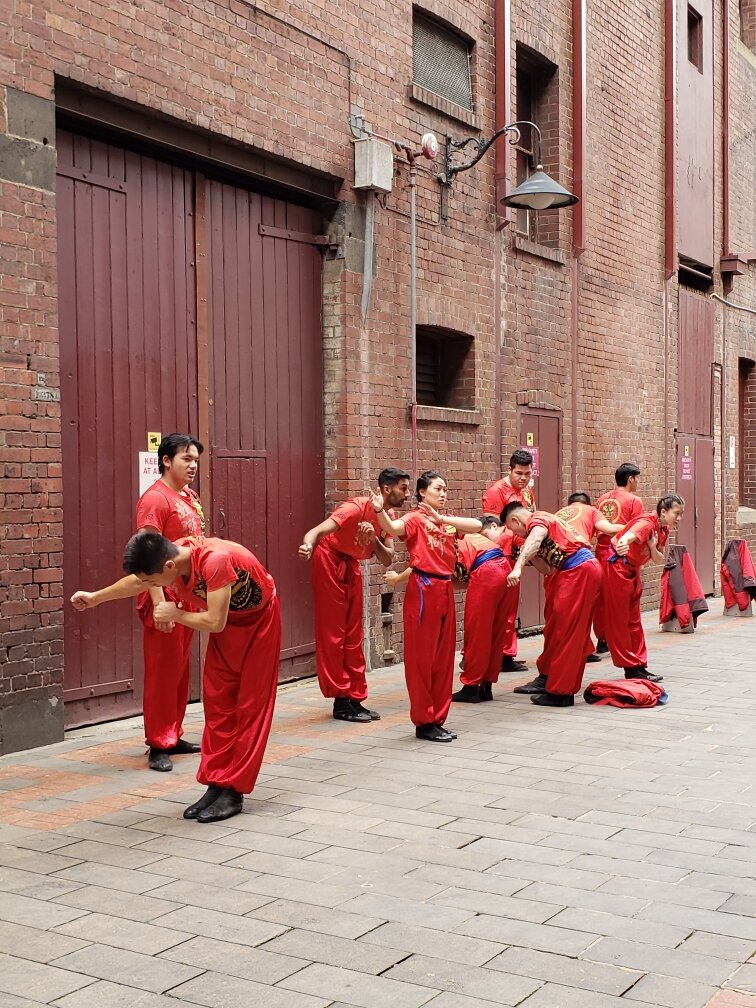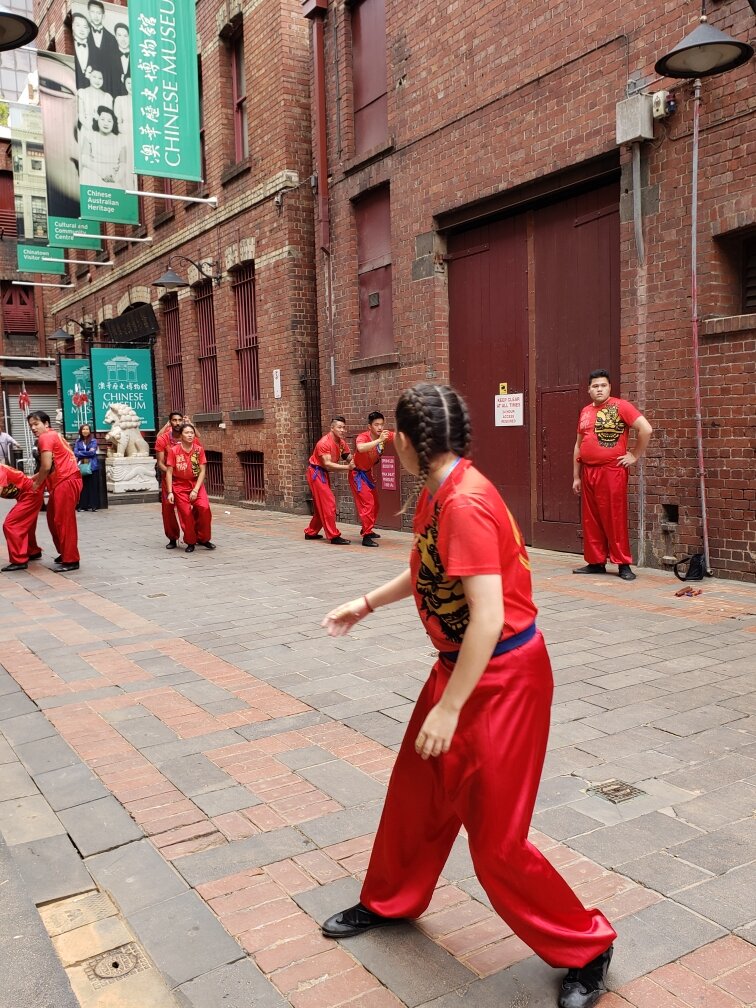The Flatiron Building is exhibiting a fascinating new video installation by artist Diana Lehr. Curated by the Cheryl McGinnis Gallery, the video installation sits in the prow of the building on the north side and features a dreamlike leaf floating on a surface of water. The videos have the feel of a graphic novel, as the description notes, and it was lovely to get lost in the beautiful colors and movement for a few minutes one morning on our commute this week. Lehr is known for bringing into “view micro-realities and things that often go unnoticed” and in incorporating “illusion and the defining line between what is real and what is not[.]” Her work is in numerous private and corporate collections and has been exhibited in New Orleans, San Diego, Philadelphia, Seattle, NYC, Los Angeles, and Honolulu. It’s the perfect antidote for this cold weather!
Surfing Beneath the Surface
Time to Get Ready for the H-1B (FY 2021) Cap Season and Prepare for Electronic Registration Starting March 1, 2020
New year, new H-1B cap! Now that we have (mostly) recovered from the parties and festivities of the holiday season, it’s time to dive straight into H-1B cap season. In about a month’s time—on March 1, 2020—we will be able to electronically submit H-1B registrations for fiscal year (FY) 2021 for individuals who have never had H-1Bs, commonly referred to as “cap cases.” (Non-cap H-1B petitions, including extensions of existing H-1Bs and change-of-employer H-1B petitions, can be filed throughout the year.) This year is notable since it is the first time that US Citizenship & Immigration Services (USCIS) will be using the H-1B electronic registration system on USCIS.gov. Earlier this month, USCIS formally announced the implementation of the electronic H-1B registration process and timeframe.
Read moreThe New York Times: “Supreme Court Allows Trump’s Wealth Test for Green Cards”
On Monday this week the Supreme Court issued a 5-4 decision to stay the current nationwide injunction of the “public charge” final rule. With this decision, the administration can implement the “public charge’ final rule for now while the underlying litigation continues, except in Illinois, which has a state-specific injunction. The “public charge” final rule will make it more difficult for immigrants to receive Green Cards if they’ve ever used, or are seen as “likely to use,” public benefits such as food stamps, Section 8 housing vouchers, and Medicaid, among others. The rule arguably redefines the “historic meaning” of the term “public charge,” which will likely result in the denial of applications based on “a bureaucrat’s suspicions that they could use welfare.”
Read moreDepartment of State Publishes Final Rule to Prevent Pregnant Women from Traveling to the US under B Visas for “Birth Tourism”
The Department of State (DOS) last week published a final rule effective January 24, 2020, that states consular officers will deny applications for B nonimmigrant visas if the officer believes that the foreign national applicant intends to travel to the US for the primary purpose of obtaining US citizenship for a child by giving birth in the US, commonly referred to as “birth tourism.” The final rule states that the DOS is addressing the issue of “birth tourism” since it “creates a potential long-term vulnerability for national security” and since the “birth tourism” industry is “rife with criminal activity, including international criminal schemes.”
Read moreSimple Statement of Fact
Year of the Rat
Every year over the Lunar New Year, we love seeing the incredible Zodiac Spectacular at the atrium at Crown Towers in Melbourne, Australia. This display features twelve large-scale luminous animals of the Chinese zodiac with over sixty lanterns. This year, the Year of the Rat, the exhibit also features a traditional wishing tree with red envelopes where Melburnians can express support and raise funds for wildlife relief and recovery through the work of Zoos Victoria. Visitors are encouraged to leave messages of hope as well as donations. In honor of the Lunar New Year on January 25, the Atrium also features performances by a lion dance team to “chase away evil spirits” along with a Hawker-style food market. We came across some dancers rehearsing for their performance tomorrow, and my hotel also provided some lovely Lunar New Year treats. The first animal in the twelve-year Chinese Zodiac, rats are known for “being clever, inquisitive and resourceful, which translates into a great year for new experiences and opportunities for success.” We like the way that sounds! Gong Xi Fa Cai!
The Guardian: "'Treated like a terrorist': US deports growing number of Iranian students with valid visas from US airports"
In December 2019, Mohammad Elmi, an Iranian national, traveled to Los Angeles to begin a PhD program at the University of California, Santa Barbara. But upon trying to enter the US, Elmi was stopped by US Customs & Border Protection (CBP) and searched and repeatedly questioned for hours. His wife, Shima Mousavi, who is pursuing a master’s degree in California, waited near the airport for eight hours before her phone rang. “I’m so sorry,” Elmi told her. “They are sending me back to Iran.”
Read moreBedrock Principal
Koalas of NYC
Approximately 15.6 million acres of bush, forest, and parks across Australia have burned in the horrific bush fires, according to the BBC. These fires have killed twenty-eight people so far, burned thousands of homes, and have had a devastating effect on an estimated billion animals, insects, birds, and other wildlife throughout the country, including Australia’s koala population. In response, Koalas of NYC, an initiative by the NYC-branch of the Australian agency Cummins&Partners, has launched a fundraising campaign to support WIRES (Wildlife Information Rescue and Education Service), the largest wildlife rescue and rehabilitation charity in Australia. To get the word out about their fundraising efforts, the agency has placed stuffed koalas in prominent locations around New York City, including Union Square, Rockefeller Center, Times Square, and Central Park, and the stuffed koalas have also visited FDNY Engine 7, Ladder 1, Battalion 1 to thank the FDNY for their support in sending firefighters to Australia. A tag with a QR code is attached to the koalas that directs passersby to the Koalas of NYC Gofundme page. The Instagram account, @koalasofnyc, shares photographs of the koalas around the city. We found one outside the Oculus in downtown Manhattan and fell in love. Rachel Mitrani, New York native and creative member of the Cummins&Partners team, tells Untapped Cities: “I’ve loved seeing the reactions to our koalas. This activation reminds people of the kindness and humanity that still exists in the world. How a team, a city, a world can come together in times of crisis and shed a little light.”









